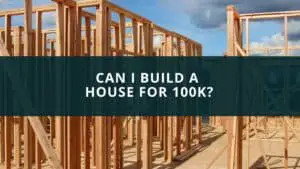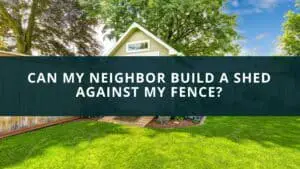
Making intelligent financial decisions is one of the best ways to ensure a comfortable future. A big part of this is investing. If you’ve just started looking into investments, you might be wondering if your family home is already part of your asset portfolio.
Your home is not an asset because assets are designed to be sold for future profits. A house is bought to live in it and doesn’t increase significantly in value. Your home also has high carrying costs, making you vulnerable to equity stripping, and lacks cash flow, making it a poor investment.
In this article, I’ll cover what an asset exactly is and what purpose it serves. I’ll also cover in detail why your home is not an asset and how you can invest in real estate assets.
Quick navigation
What Is an Asset?
An asset is a valuable resource that you can turn into cash. Assets can belong to people, companies, and governments.
In this article, I will also use the term investment. An investment is a kind of asset which you obtain to make more money in the future. You do not buy an investment to use it in the present moment, but to sell it later for greater value.
There are both personal assets and business assets. For the purpose of this article, we will look at just personal assets.
Personal Assets
Examples of common personal assets include:
- Physical cash
- Money in bank accounts
- Land
- Boats
- Cars
- Furniture
- Collectible items
- Jewelry
- Investment bonds
- Stocks
- Retirement fund balances
Your home is not an asset for various reasons.
The Purpose of Your Home Is Not an Investment
You buy your house because you want to live in it. This means that it serves the purpose of sheltering you and your family.
Your source of shelter cannot be an investment because you can’t choose to sell it at the most profitable time. With other assets like shares or bonds, you can watch the market and sell at the perfect time to make the greatest return.
This isn’t possible with your home because you will need to seek alternative shelter (another house). You can only sell when you are in a position to purchase a different home or enter into a rental contract.
Therefore, this disqualifies your home as an investable asset.
Your Home Doesn’t Increase That Much in Value
The purpose of an asset is to make you a profit in the future. However, due to the unpredictable housing market, there is no guarantee that your home will turn a profit.
Theoretically, your home should increase in value over time. However, external factors like economic recessions can depreciate the value of your house.
Until 2007, the value of real estate increased exponentially. However, when the 2008 financial crisis happened, the value of homes decreased. Their value increased again until 2018 when prices decreased again.
Because of the COVID-19 recession, real estate prices are predicted to drop again. This is a historical trend that follows global economic downturns and recessions.
Economic crises can decrease the value of your property to close to what you bought it for. Therefore, a home is a poor investment and may or may not gain you a profit.
Assets Are Designed to Be Sold
Your home is not an asset if you intend to live in it long term and never move. Assets are designed to be sold, so choosing to continue living in your home disqualifies it as an asset.
Even if you choose to sell your home to get another house, this results in trapped equity. Equity refers to the value and ownership of your assets. Because you need to sell your first home to afford the second one, the equity is trapped.
However, this doesn’t apply if you intend to downsize your home or begin renting. In this scenario, you could treat your home as an asset. But most people don’t buy houses just to sell them and move into less expensive homes, so this is usually not applicable.
Equity Stripping Can Put You at Risk
If you treat your home as an asset, you can fall vulnerable to equity stripping.
If you have a mortgage on your home, you can borrow against it to get more equity. Some people might be tempted to do this if they’re running short on funds or need to buy more things for the house.
However, this is dangerous. This makes a liability because you owe more money in the long run. In simple terms, you’re putting yourself into more debt.
When you view your home as an asset, you can ignore equity stripping risks and put yourself into financial danger.
If an economic recession happens, you may be left without equity in your home. Your house may technically be worth less than what you have borrowed against it because of the market. This means you would not be able to decrease monthly repayments through refinancing or even sell for a profit.
Your Home Has High Carrying Costs
Your home is not a profitable asset because of how much you need to spend on upkeep. These expenses are referred to as carrying costs.
Some examples of house carrying costs include:
- Mortgage repayments
- Home insurance
- Electricity, water, and gas
- Property taxes
- Interest on mortgage repayments
- Maintenance
- Homeowners Association fees
The entire time that you own your home, you will be paying carrying costs. Therefore, you can be losing money in the long run, which means your home is not an asset.
Your Home Does Not Make Cash Flow
Most assets and investments have a cash flow. For example, when you buy shares, you get dividend payments regularly. If you have a bond, it will pay you interest.
Your home does not provide you any cash flow up until the point you sell it. Unless you are renting out a room in your house to tenants, it costs you money without making you any.
When Can a House Become an Asset?
A house can become an asset if you choose to invest in real estate. Here are ways you can do this.
- Investment properties: An investment property is when you buy a house to make money. You do not live in this property, but usually, rent it out to tenants. This kind of house is an asset because it is not your shelter, and it generates cash flow. You can use this house to make a profit and choose to sell at a time when the market is most favorable.
- Flipping houses: Flipping houses is an increasingly popular way to make a profit. You buy a house with the intent to sell it for a profit. This usually means renovating an old property to increase its value. House flipping can be difficult because you need to still make a profit even after the expenses incurred from renovations. However, if successful, you can turn a decent profit from these assets.
Summary
Your home is not an asset because it isn’t intended to make a profit. Because of the ongoing carrying costs, your house is likely to cost you more than it makes. Additionally, the real estate market is vulnerable to economic recessions, and so your house may revert to its original value or even less.
Your home is primarily your source of shelter and does not generate you any cash flow. It also has many ongoing costs that make it a poor investment.
If you are looking to invest in real estate, you should consider investment properties or even flipping houses. This allows you to generate a profit without endangering the place where you live.



